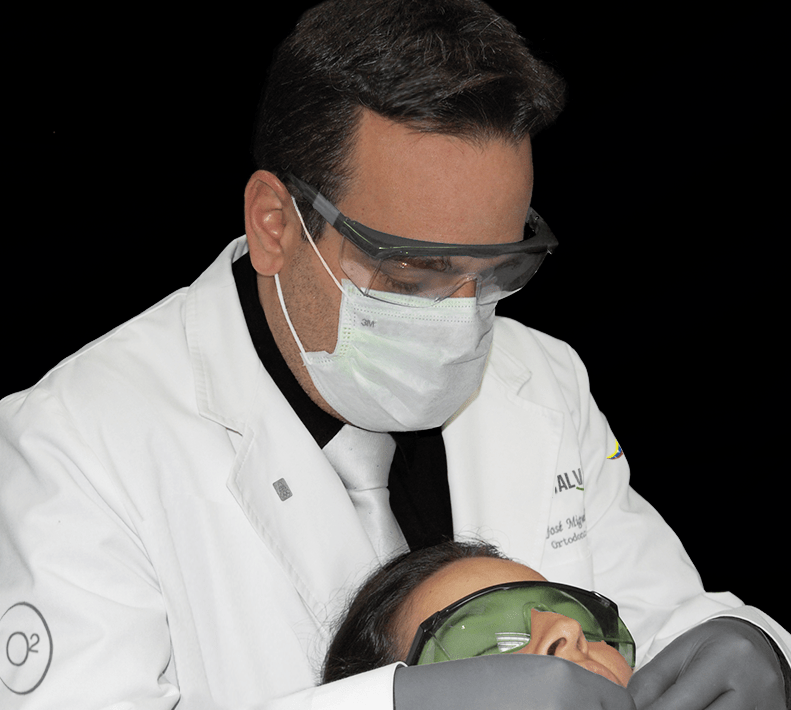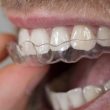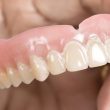Table of Contents
Does a dental implant last forever? Are they permanent or definitive? If these are the questions that go through your mind, you should consider that no one, no professional, no matter how recognized and experienced he or she may be, is capable of accurately determining the duration in years of an oral rehabilitation; and less, if it is over dental implants.
Beyond the excellence in the clinical execution of the treatment and the quality of the implanted material, a large number of factors outside the professional staff will always come into play, and many times, the patient himself. Furthermore, as we know, in biology variability is the rule rather than the exception.
However, a good way to approach the subject, is to realize that nothing lasts forever, not even your own teeth! Even so, with proper care and maintenance, a dental implant can last more than 25 years.
In reality, dental implants were conceived to be a permanent dental replacement option. Its design is based on the concept of osseointegration, a phenomenon that involves functional ankylosis between the implant and its recipient bone. This allows it to serve as a dental prosthesis base or abutment, withstand the forces of chewing, and maintain its long-term stability.
In addition to replacing missing teeth, implant surgery also helps restore masticatory function and protect natural teeth, by reducing the loads on remaining teeth. This preserves the natural dentition and prevents deterioration or bone resorption of the jawbone, something unavoidable with the use of removable dentures.
A dental implant looks and feels exactly like a natural tooth, which is perfect for enhancing a patient’s confidence and self-esteem. People with this type of treatment, usually smile with pride after completing the rehabilitation. In addition to their aesthetic value, implants allow to eat, chew and speak normally, without the prosthesis moving or causing discomfort.
Even so, we must never underestimate the fact that there are other alternatives to implant surgery, which include fixed bridges and removable dentures; mainly. However, it is also important to recognize the advantages that only implants have over the other prosthetic options, as well as their greater longevity or functional duration.
To give a better answer to the question that occupies the title of this article, we must begin by knowing the components of a rehabilitation with dental implants.
Components of an Implant-Supported Restoration
These are the three basic components of a restoration over dental implants:
1- Implant Properly Said It is the element that the Surgeon places and that is shaped like a screw or cylinder. It is a device usually made of titanium, which is surgically inserted into the patient’s jawbone. Simply put, the implant functions like the root of a tooth, as it is its artificial substitute.
2- Prosthetic Pillar or Abutment It is another device that is screwed, but this time to the implant. It remains above the gum margin and serves to support and retain the crown or prosthetic restoration.
3- Crown or Prosthesis It is the part that simulates and replaces the natural tooth. The crown is made primarily of ceramic, and can be screwed or cemented onto the abutment.
Generally, the exposed parts of an implant-supported restoration; abutment and crown, are more susceptible to damage and deterioration than the implant itself. That is, the titanium cylinder can last almost a lifetime inside the bone, while the longevity of the crown usually ranges between 10 and 20 years, depending on the care and maintenance it receives.
How Long Do Dental Implants Last?
We already said that dental implants can last 25 years or more. This is true, but as long as they are properly cared for. Please note that the longevity of a dental implant depends of several factors, including:
1- Preparation and Skill of Your Professional Staff
If the rehabilitation of your case is handled by a Surgery Specialist and a well-trained and experienced Prosthodontic Specialist, your dental implant will last much longer. This is because the true Specialists know how to place the implant perfectly, evaluate the progress of its osseointegration and above all; they know how to protect it from functional overloads or excessive chewing forces.
2- Quality and Trademark of the Device
The quality of the material and the precision in the manufacturing process of any implant product, are decisive for the success of the treatment. Only high-end dental implants can guarantee the excellence and longevity of your rehabilitation.
Clone or low cost trademarks, always sacrifice quality for price, and the longevity of their products is uncertain, since they are trademarks that last a short time in the market and never carry out long-term follow-up studies.
3- Use of the Night Splint
In the vast majority of cases, it is essential to sleep with a plastic splint to protect the teeth and implants from the harmful forces that generate bruxism and other very common parafunctional habits, and generally unconscious. The night splint works as a “life insurance” for your implants.
If bruxism is very harmful to natural teeth, it is fatal for implants, since they do not have periodontal ligament and lack its cushioning effect.
4- Oral Hygiene
If normally, to maintain a healthy natural dentition, it is necessary to dedicate time and effort to learn, master and apply adequate oral hygiene techniques several times a day; in the case of implants the effort must be redoubled.
Although dental implants are very similar to natural teeth, they do not reach the perfection of nature, and they have a large number of joints or unions between their different parts and components; all susceptible to accumulate a large amount of dental plaque, much greater than that which it can be deposited on a smooth and anatomically perfect natural tooth.
Apart from brushing, using the interdental brush and dental floss at least 3 times a day, the care and maintenance of a dental implant requires the incorporation of the irrigation technique, with Waterpik-type devices; which clean through the application of a jet of water under pressure, hydrojet type. This in order to remove or eliminate any residue or rest of food that has been trapped in the joints or interfaces of the structure.
A common misconception is that the implant, as it is not susceptible to tooth decay, requires less care than a natural tooth. Although it is true that none of its components will demineralize, it is also true that they are more susceptible to periodontal diseases than natural teeth.
If there is not good oral hygiene, it is likely that over time the bone tissue that supports and retains the implant will become infected and peri-implantitis will develop, which can cause mobility and loss of the implant, as it happens with periodontitis and natural teeth.
5- Common Sense
As in any aspect of life, making rational use of your new rehabilitation, will considerably extend its useful life. Uncapping bottles, crushing ice, chewing or forcefully biting hard or foreign objects; will detract from the longevity of your implants.
6- Location of the Rehabilitation
The location of the dental implant in your mouth, is also a factor that will influence the longevity of your treatment. For example, implants placed in the back of the mouth, will always receive more chewing load than those placed in the front. As a result, posterior implants, located at the molar and premolar level, tend to last less than those in the anterior area, at the incisor level.
7- General Health and Lifestyle
Patients who smoke or drink heavily have a greater risk of suffering from peri-implantitis than those who do not. Similarly, suffering from uncontrolled chronic pathologies (infectious, immunological or degenerative), facial trauma and neoplasms; it will significantly limit the useful life of your implants.
A typical example is that of the uncontrolled diabetic patient. This type of patient, although be careful, brushes perfectly, sleeps with the splint and goes regularly to his check-up appointments; will always be at risk of losing his implants, as permanent hyperglycemia limits his immune responsiveness and makes him easy and weak prey for any periodontal infection.
8- Periodic Checkups and Cleanings
Essential every 4 months, or at least, 2 times a year; to thoroughly clean surfaces that cannot be reached by the patient, rule out or treat on time incipient infectious processes, mismatches or failures of prosthetic components.
What Do the Statistics Say?
The technological advance with scientific support of the last 40 years, has positioned oral implantology not only as a work philosophy, but rather, as a real treatment alternative; being dental implants widely spread and their success rates very high.
After reviewing many articles and taking averages, we can conclude that the statistics of the most reliable publications reflect the following numbers in relation to the survival rate of high-end dental implants:
- 90% success rate after 5 years of observation.
- 85% success rate at 10 years of observation.
- 75% success rate at 15 years of observation.
- 55% success rate at 20 years of observation.
Why Do Dental Implants Fail?
As stated above, dental implants are designed to be a permanent dental replacement option when properly maintained. However, there are some factors that can cause the dental implant to fail prematurely. Heavy smokers, uncontrolled diabetic patients, or patients with pre-existing medical conditions such as cancer, are at increased risk of dental implant failure.
Another very common cause of therapeutic failure is the omission of the indication and/or use of the night protective splint. Many patients do not use or stop using the device to sleep, exposing their implants to the devastating effects of bruxism or tooth clenching.
Poor oral hygiene practices can also cause loss of dental implants. As with your natural teeth, you should maintain your dental implants by brushing, flossing and using the oral irrigator regularly. Poor oral hygiene practices can lead to irreversible gum diseases surrounding implants (mucositis or peri-implantitis), and that later can lead to their failure or loosening.
The absence or avoidance of periodic checkups and professional cleanings every 4-6 months, is one of the main causes of the loss of longevity of implant-supported restorations. The reality is that very few patients are truly aware of the importance of following a good consensual periodontal maintenance protocol, and even less, those who submit to it.
“With Proper Care and Maintenance, Dental Implants Can Last Up to 3 Decades in the Mouth”.
DENTAL TIP
How to Save Thousands by Getting Dental Work in Venezuela
On average, dental work in Venezuela is about a third the price of what you are used to paying at home, without a drop in the quality of care. All the process takes is just a little research and a few more logistics. In the “Dental Tourism” category of this same blog we describe all the considerations necessary to get dental care done in Venezuela.
The first thing you want to do is get a quote for the dental work you need done by our team. Most of the time, simply sending a few photos and X-rays to us will do just fine. The online consultation will provide a strong idea of what will need to be done, and will be able to provide you with a pretty close cost estimate for the dental procedures.
Through our WhatsApp or Email you can ask all the necessary questions about the proposed treatment and its details. DENTAL VIP has specially trained personnel for this function.
Once the quote is approved, you must indicate the date of your trip to corroborate the treatment viability in the selected period, ensure your accommodation and proceed with the purchase of air tickets.
Congrats! Now you are on your way to saving thousands by getting dental work in Venezuela.












